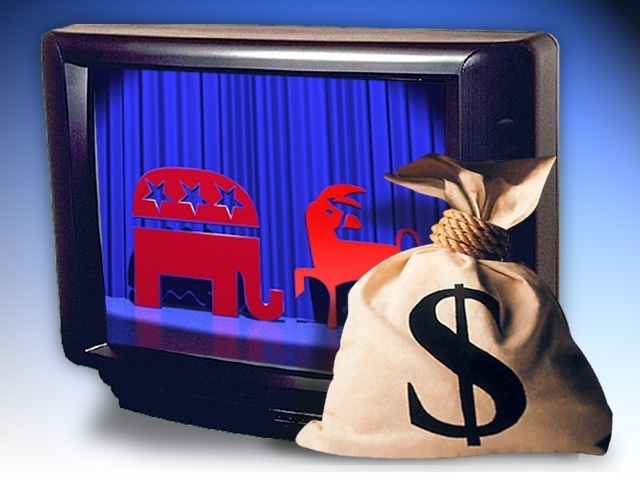DISCLOSE Act to shed new light on funding sources for California political ads

If a consumer elecronics company ran an ad for computers that contained a series of egregious lies, the public would be up in arms, and the company would be hauled before the Federal Trade Commission or the state Attorney General's office for misrepresentation. But when it comes to the selling of elected officials, the rules are different.
Recent examples include the "rapper/stripper" ad referenced earlier this week by fellow CAIVN contributor Wes Messamore and the "demon sheep" ad from the 2010 California GOP Senatorial primary campaign. The swift-boating campaign against John Kerry and the equally slime-laden ads attacking war heroes John McCain and Georgia Representative Max Clelan provide further evidence that prevarication not only goes unchallenged in political marketing, but is also effective.
The good news is that there appears to be some cleansing light at the end of this grimy tunnel -- at least in California -- where AB 1148 is slowly winding its way through the state Assembly. Also known as the DISCLOSE Act, AB 1148 would mandate a clear statement of sponsorship in political ads funded by wealthy individuals or big corporations. Under AB 1148, the largest funders of an ad would have to appear in the ad, identify themselves, and say that they "helped pay for this message and approve it."
The DISCLOSE Act is crafted by Santa Monica Democrat Julia Brownley, and has the backing of the California Clean Money Campaign (www.CAclean.org), California Church IMPACT, California Common Cause and the California Nurses Association.
The church group, which represents 21 denominations with 1.5 million members within the mainline and progressive Protestant communities of faith, is the latest major organization to support this injection of transparency into the election campaign process.
"The overwhelming power of money to mislead voters is a profound moral issue," said the Reverend Dr. Rick Schlosser, Executive Director of California Church IMPACT. "Voters deserve real disclosure in political ads so they know which powerful special interests are trying to buy elections and can make more informed decisions on which messages to believe."
AB 1148 applies to all ads supporting or opposing ballot measures, or ads supporting or opposing candidates paid for by independent expenditures. California already has strong reporting requirements for candidates, so AB 1148 imposes no new reporting requirements upon them, but requires candidates to "stand by the ad" as do federal candidates. As an amendment to the Political Reform Act of 1974, AB 1148 can either be put into effect by a 2/3 vote of the legislature or by a majority vote placing a measure on the ballot for the voters to decide.
"The California DISCLOSE Act is a critical piece of legislation to fight unregulated corporate influence over California elections," said Jo Seidita, Chair of the California Clean Money Campaign. "Californians have a right to know who is financing the ads that they are constantly bombarded with during election season."




